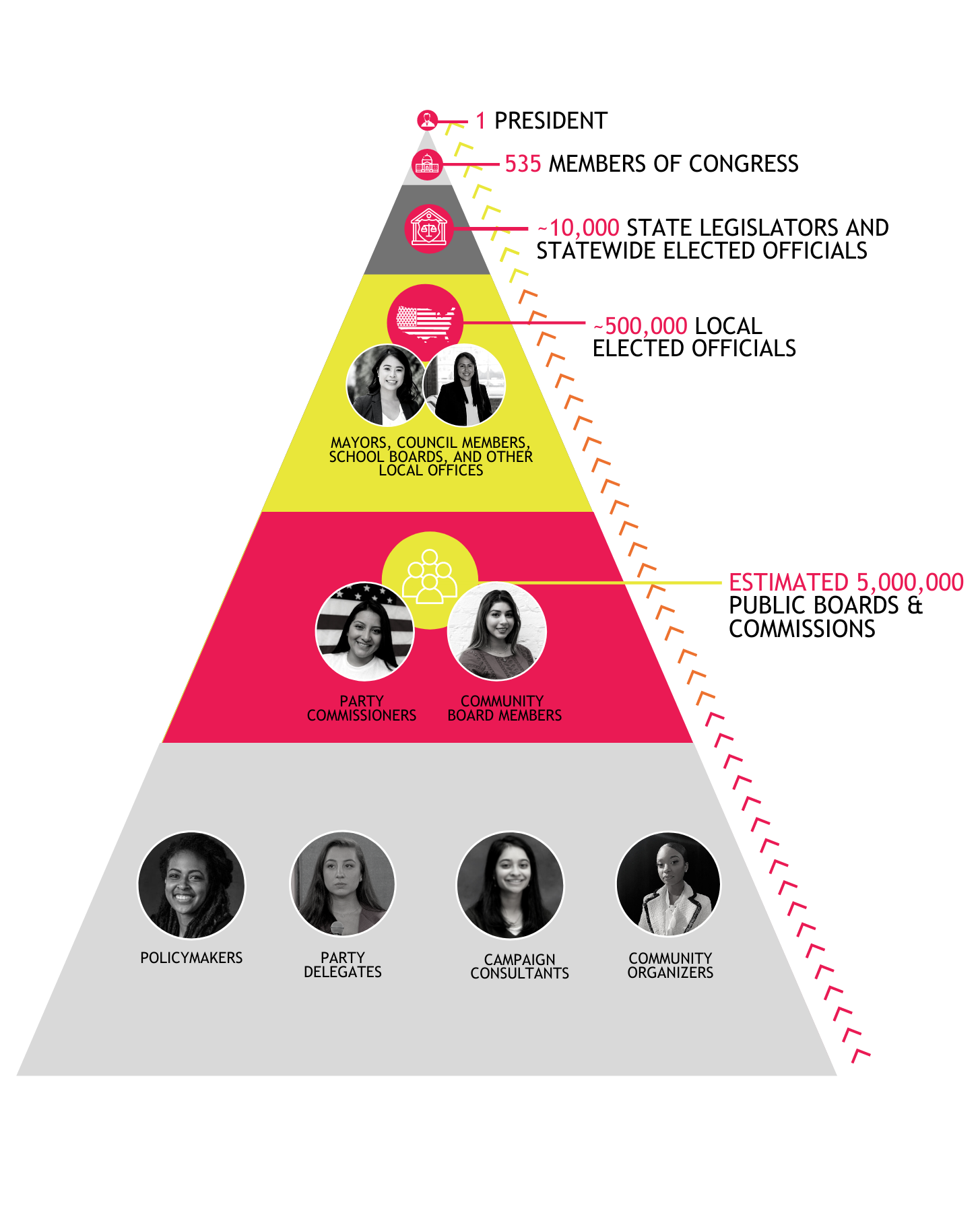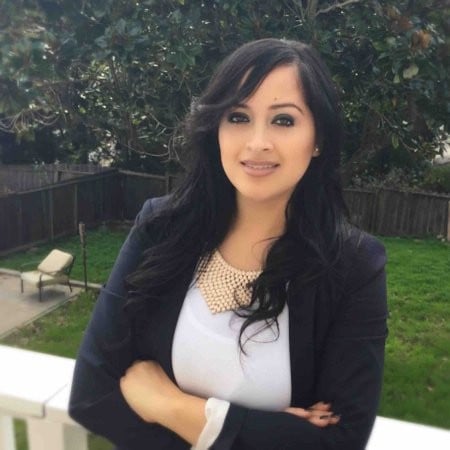IGNITE's Guide to Running for Office: Step 2
Step 2: Identify the office you want to run for
Turning on your television it can feel like politicians are everywhere. But the politicians that dominate the news - like the President and members of Congress - barely scratch the surface of how many elected leaders actually are in the United States.
From School Board to City Council to President, there are almost 520,000 elected positions for you to run for! This number doesn't include the countless positions in student government at high schools and universities across America.
Most people think those at the top of the pyramid have the most power, but local leaders have a surprising amount of influence changing the everyday issues that impact you. And, usually, change happens faster at the city and state level. So, if you want to make an impact fast, run for local office.
In step two, you'll do some research to figure out what office you want to run for. Will you run for office at your high school? Your college? Or will you run for office in your community, like City Council?

Spotlight: Mary Black
Mary Black, a 27-year-old environmental justice activist, announced plans to run for the Raleigh Council District in Raleigh, North Carolina.

Identify what role is right for you
Figure out what office you want to run for. Here are some questions to consider:
- Where do I plan to live?
- What are the offices in my area?
- Which of these offices interest me and why?
Research your options
Once you have identified an office, do some research to inform your run:
- How many people hold this position?
- Are the seats at-large (the whole community elects a slate of people) or district-specific (each area elects one representative)?
- Who holds the seat I am interested in now?
- In my estimation, how good or poor a job are these elected officials doing and why?
- What are the issues in my community that I think electeds should be focusing on?
Recommended Reading
Still not sure what office you should run for? These five articles break down some options.
Tips from an expert
Saira Guzman is a Commissioner on Hayward’s Community Services Commission where she advises the City Council on the most effective means of allocating available resources for community services.
"I recommend that women get involved in their communities; go out and volunteer, meet and get to know your local elected officials, intern for a political leader you find inspiring because you will gain valuable experience. Attend City Council meetings to learn what policies/work they are working on, volunteer on campaigns to get first-hand experience on what it is to run for office."

